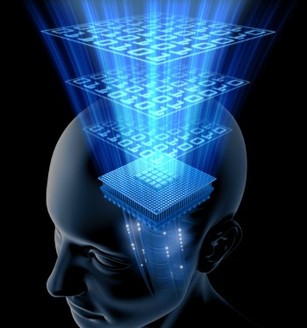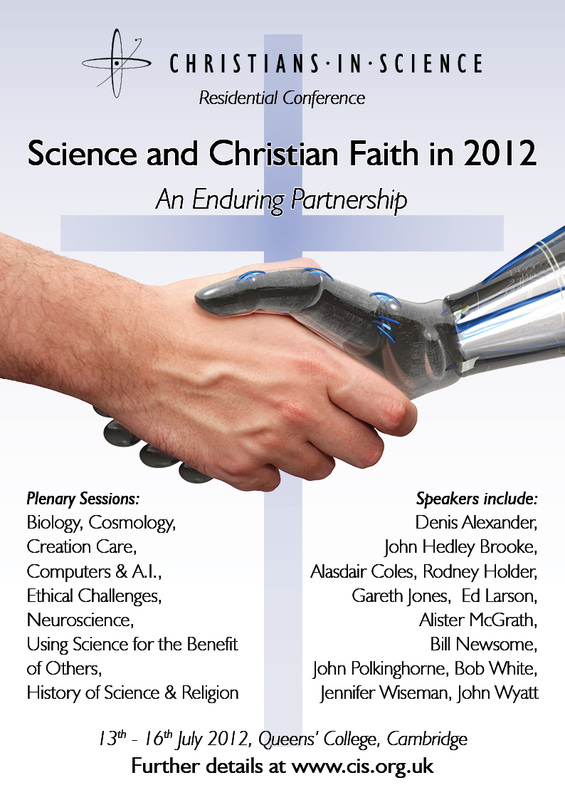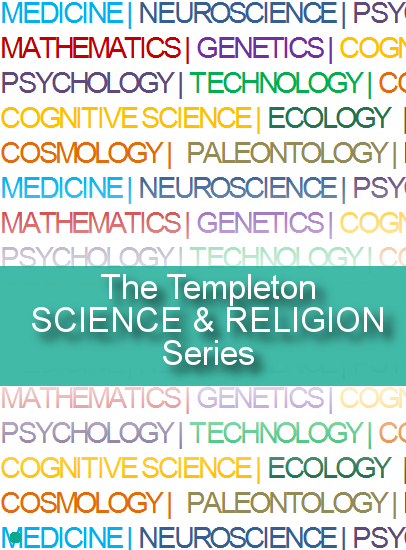Humanity 2.0?
 Artistic portrayal of actor Chris Evans as Captain America
by Gavin Merrifield
If you’ve been to the cinema recently, you might have seen the blockbuster film, The Avengers. In it, a dazzling array of superheroes team up to fight off an alien invasion force. The heroes involved are not just superheroes, they are super-human too. There is Iron Man, a fusion of advanced technology and rare human genius. Captain America represents the optimization of our physical potential. The Asgardians, in the shape of the heroic Thor and the villain Loki, are beings so advanced that they’re convinced of being awesomely powerful gods – only for the irradiated human Hulk to comically correct that conceit towards the end of the film. Although these characters embody modern ideas about technology and human biological potential, the general theme of a super-human with abilities far beyond the norm resonates down the ages. We see this in some of our most ancient stories, such as the Epic of Gilgamesh, in the demigods of Rome and Greece, and the Old Testament warrior Samson. In more recent times, we encounter them in precursors to modern science fiction, including the works of Mary Shelly, H. G. Wells, and in the fantasy worlds of J.R.R. Tolkien and C.S. Lewis. Indeed, the Avengers, themselves, are comic book characters many decades old. Today, stories of augmented human beings are stepping beyond their fictional counterparts—through the use of innovative technologies, they may become a widespread reality. Genetic or drug-based techniques may unlock new physical potentials, while computers and advanced materials might augment our biology. Often, the drivers for these new technologies are medical or therapeutic—a desire to repair what has already gone wrong, or to barricade against forthcoming physical or mental decay. But those same technologies give us the possibility to go further, to enhance our physical, mental, and psychological abilities beyond mere correction of an injury or medical disadvantage. Although historically we seem fascinated by the idea of human enhancement, the possibility of these advancements being realised has caused concern within society and the Church. Some of this concern is perhaps justified, some maybe not. Given the potential benefits to human health and wellbeing that may come from enhancement technologies, it is worth spending time seriously considering them. Firstly, it is worth noting that both the positive and negative aspects of this topic have been oversold by those at extreme ends of a wide spectrum of views. At the extreme of the pro-enhancement group are those who would identify themselves as transhumanists. Advocating a rapid deployment of enhancement technologies, they desire to finally rid humanity of all they perceive to be weakness. They advocate for the physical transformation of the human species into something beyond its current limits. In this worldview, humanity can save itself, can bypass death, and thus does not need the physical and spiritual transformation of Christianity. The other end of the spectrum, those with more conservative views, see any enhancement of our biological form as not only unnecessary, but as unethical. Religious advocates argue that we shouldn’t interfere with what God has already perfectly created: humanity is to be regarded as sacred and untouchable. To change it is to engage in hubris of the highest order and threatens to undo God’s good work. Our current physical form gives us the ability to carry out our side of relationship with God, but does it carry unique sacred value in itself?
 "Uploading the mind"
So why have these positions been oversold? For the transhumanists, faith in technology and physical change to solve humanity’s underlying societal and personal problems may be misplaced to the point of being unrealistic. That said, life is about change and new creation. God most likely values on-going diversity rather than a simple, static creation. Without it, our species would become increasingly vulnerable and stale in an ever-changing universe.
Is there a way that a Christian can navigate through this potential minefield of new opportunities? There is no single answer, as enhancement technology will continue to breed new ideas and questions, but here are a few points to consider. There can be a fine line between what we label a much-needed therapy and what enhancement is—but even the latter is not necessarily unethical. For example, if I have a patient with a muscle-wasting disease caused by a genetic quirk, and a treatment is available that would correct that quirk, we can mostly agree the treatment should be used to help restore that patient to health. However, what if that same technique could enhance the physical strength or speed of an athlete? We would probably back away from using it. But what if the technique was used to give a rescue worker superior strength that would help him save more lives? Not so easy. We must remember that human enhancement exists, already—vaccines and pacemakers are both good examples. Most people are quite comfortable with their uses and we continue to reap the blessings from them. Can technology be considered a gift from God to humanity? As God’s regents on planet Earth, created in God’s image, we are to mirror both the creative activity of God and God’s priorities. Rather than asking whether a particular technology is right or wrong, maybe it’s better to consider why we want to use it and for what purpose. If the answer to both is just and righteous, can we really say no to its use? The real hubris here is in the question of whether we are changing our physical attributes to please ourselves or to be in accordance with God’s values and objectives. Believing our physical form is sacred, and that we humans are to define the sacred, rather than God, is a dangerous cliff to dwell near. Does our core value come from the material collection of the atoms that give rise to our being, or on the love that God bestows on human persons? Our current physical form gives us the ability to carry out our side of relationship with God, but does it carry unique sacred value in itself? The extreme enhancement technologies welcomed by transhumanists and feared by their opponents will not appear overnight, and they can’t transform us beyond the limits society sets. Those limits can be shaped in part by a Church that engages with these technologies and their impact on society by advocating just use while protecting what is truly sacred. The limits we place on enhancement technologies should not be set so narrow as to prevent the systematic good that can come from them, which is neither the preservation of an imaginary ‘perfect’ human physical form nor the promotion of humanity as its own saviour. Instead, the charge God gives us is to work for the good of all those around us with all the tools we’ve been blessed with, which perhaps includes the creativity to make a few, carefully considered, technological tweaks. |







